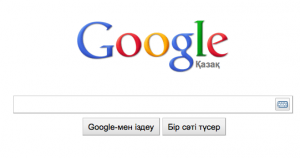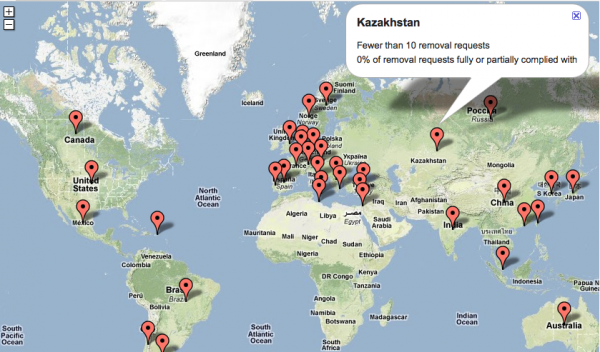Seeking To Avoid A “Fractured Internet” Google Pulls Out Of Kazakhstan
In the words of Borat, the fictional Kazakh journalist and alter-ego of comedian Sasha Baron Cohen, the government of Kazakhstan is not being “very nice” to the internet. The autocratic government of President Nursultan Nazarbayev has been for the past several years seeking to assert more control over the internet and online content available to […]
 In the words of Borat, the fictional Kazakh journalist and alter-ego of comedian Sasha Baron Cohen, the government of Kazakhstan is not being “very nice” to the internet. The autocratic government of President Nursultan Nazarbayev has been for the past several years seeking to assert more control over the internet and online content available to Kazakh citizens.
In the words of Borat, the fictional Kazakh journalist and alter-ego of comedian Sasha Baron Cohen, the government of Kazakhstan is not being “very nice” to the internet. The autocratic government of President Nursultan Nazarbayev has been for the past several years seeking to assert more control over the internet and online content available to Kazakh citizens.
It recently issued an order that all internet traffic with “.kz” domain names had to be routed through servers within the country. Google isn’t having any of it and said that it would no longer operate Google.kz:
Last month, the Kazakhstan Network Information Centre notified us of an order issued by the Ministry of Communications and Information in Kazakhstan that requires all .kz domain names, such as google.kz, to operate on physical servers within the borders of that country . . . If we were to operate google.kz only via servers located inside Kazakhstan, we would be helping to create a fractured Internet. So we have decided to redirect users that visit google.kz to google.com in Kazakh.
Google could also simply redirect people to Google.ru given that more Kazakh citizens speak Russian than the official language of the country Kazakh.
As more authoritarian governments look around the world and see the “destabilizing” role the internet has played in the “Arab spring” and other democratic political uprisings, more will seek to assert control in one form or another over online content and communication or organizing tools available to their citizenry. China is Google’s most visible and formidable opponent on the matter of free speech online.
Google publishes a “censorship map” (transparency report) that reflects and logs official requests for removal of information from Google’s index in that country. Ironically Kazakhstan has only 10 requests vs. more than 4,000 from the US during the same period.
Contributing authors are invited to create content for Search Engine Land and are chosen for their expertise and contribution to the search community. Our contributors work under the oversight of the editorial staff and contributions are checked for quality and relevance to our readers. The opinions they express are their own.
Related stories
New on Search Engine Land
